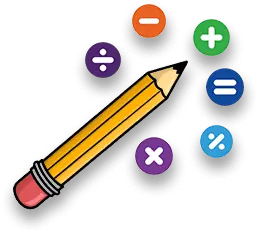

Menu



Social Share:
Math can be a daunting subject for many, but starting early with engaging and fun resources can make a world of difference. Printable math worksheets for early learners are a fantastic tool to kickstart this journey. They are not only convenient but also offer a range of activities tailored to young minds.
In this article, we’ll delve into the importance of early math education, explore the benefits of printable worksheets, and provide tips and resources to make math a delightful experience for your little ones.
Early math education sets the stage for a child’s academic journey. It’s like laying the first bricks of a building; a solid foundation ensures stability and growth. Early exposure to math concepts helps children develop critical thinking and problem-solving skills that are essential for future success.
Engaging with math from a young age stimulates cognitive development. It enhances memory, attention, and reasoning abilities. Math puzzles and problems challenge the brain, fostering a growth mindset and resilience in learning.
A good grasp of early math concepts prepares children for more complex subjects in later grades. It builds confidence and reduces anxiety towards math, making the transition to higher levels smoother and more enjoyable.
Printable math worksheets are easily accessible. You can download and print them anytime, making them a flexible tool for both home and school use. No need for special equipment or expensive materials.
These worksheets come in various themes and difficulty levels, catering to different learning needs and interests. You can choose from basic counting to more advanced arithmetic, ensuring your child remains engaged and challenged.
Printable worksheets are often free or very affordable. They offer a budget-friendly option for parents and educators, providing high-quality educational content without breaking the bank.
Effective math worksheets should match the child’s developmental stage. They should introduce concepts gradually, ensuring the child isn’t overwhelmed and can build their skills progressively.
Worksheets with colorful graphics, fun characters, and interactive elements can make learning more enjoyable. Engaging designs capture a child’s attention and make the learning process exciting.
Clear, simple instructions and examples help children understand what is expected of them. This clarity fosters independence, allowing them to work through problems on their own or with minimal assistance.
These worksheets focus on helping children recognize numbers and understand counting sequences. They might include activities like matching numbers to objects, filling in missing numbers, and simple counting exercises.
Introducing basic arithmetic early on is crucial. Worksheets in this category often use visual aids like pictures and number lines to make addition and subtraction more tangible and less abstract.
Understanding shapes and recognizing patterns are fundamental skills. Worksheets can include tasks like identifying different shapes, drawing shapes, and completing patterns, which are all fun ways to develop these skills.
Measurement and comparison worksheets introduce concepts like length, weight, and volume. Activities might include measuring objects with a ruler, comparing weights, and sorting items by size.
Counting is one of the first math skills children learn. It forms the basis for all future math learning. Worksheets that focus on counting help children understand the relationship between numbers and quantities.
To make counting fun, worksheets might include games like number hunts, connect-the-dots, and color-by-number activities. These interactive tasks keep children engaged and reinforce their number recognition skills.
Effective counting worksheets might feature colorful images of animals, fruits, or toys that children can count. They often include spaces for children to write numbers, helping to reinforce their learning through writing practice.
Basic addition and subtraction are the building blocks of math. Introducing these concepts through worksheets helps children grasp the idea of combining and separating quantities in a visual and tangible way.
Using themes like pirates or superheroes can make arithmetic more appealing. Incorporating story problems that require solving simple addition or subtraction problems can also add an element of fun.
Worksheets that use colorful pictures and scenarios, such as adding apples in a basket or subtracting ducks from a pond, make arithmetic relatable and engaging. Visual aids help children better understand the concepts.
Shapes and patterns are everywhere in our world, making it essential for children to recognize and understand them. Worksheets in this category help children identify and create patterns, fostering an early love for geometry.
Worksheets might include activities like tracing shapes, matching shapes to objects, and sorting shapes. These tasks help children become familiar with different shapes and their properties.
Recognizing and creating patterns are key skills in math. Worksheets can include activities like completing a sequence of shapes or colors, which help develop a child’s ability to see and predict patterns.
Measurement worksheets introduce children to concepts like length, height, and volume. Understanding these concepts is fundamental for more advanced math and everyday life skills.
Activities might include measuring objects with a ruler, comparing the heights of different items, or pouring water into containers of various sizes. These hands-on tasks make measurement fun and practical.
Worksheets that focus on comparison might ask children to sort items by size or compare quantities. These activities help children understand relationships between different objects and quantities.
Gamifying learning can significantly enhance a child’s engagement and motivation. Games turn learning into an adventure, making it more enjoyable and less like a chore.
Math games like number bingo, math scavenger hunts, and counting races can be excellent additions to worksheets. These games reinforce math skills in a playful and interactive way.
Combining worksheets with games can create a balanced approach to learning. For instance, after completing a worksheet, children might play a related math game to reinforce the concepts they’ve just practiced.
To get the most out of printable worksheets, use them consistently but not excessively. Pair them with hands-on activities and real-life math experiences to provide a well-rounded learning experience.
Praise efforts and progress, not just correct answers. Celebrate small victories to build confidence and a positive attitude towards math. Avoid creating pressure; instead, make learning a fun and rewarding journey.
A quiet, well-lit space with minimal distractions can enhance focus. Keep learning materials organized and accessible. Encourage questions and curiosity to foster a love for learning.
Books and collections of printable worksheets can be found in bookstores and online. These resources often come with a variety of activities and are structured to progress with your child’s learning.
If you have specific needs, creating your own worksheets can be a great option. You can tailor them to your child’s interests and learning pace, ensuring they get the most out of each activity.
Children have diverse learning styles, such as visual, auditory, or kinesthetic. Adapting worksheets to include elements that cater to these styles can enhance understanding and retention.
It’s important to match the difficulty of worksheets to your child’s skill level. Start with simpler tasks and gradually increase the complexity as they become more comfortable with the concepts.
Incorporate your child’s interests into worksheets. If they love animals, use animal-themed math problems. Personalization makes learning more relevant and engaging.
Keep track of completed worksheets and monitor progress over time. This helps identify areas of strength and those needing more practice, allowing for targeted learning.
Provide feedback that is specific and constructive. Instead of just pointing out mistakes, explain how to correct them and praise efforts and improvements.
Celebrate milestones and successes, no matter how small. Positive reinforcement builds confidence and motivates continued learning.
Printable math worksheets are an invaluable tool for early learners, offering a blend of fun and educational content that can make math a joy rather than a chore. By incorporating engaging designs, interactive elements, and a variety of activities, these worksheets can help build a strong mathematical foundation. Whether you’re a parent or educator, leveraging these resources effectively can foster a lifelong love for math in your child.

As a parent, your role is to guide...
Read more

Mastering divisibility rules doesn’t have to be difficult....
Read more

Homework is just one part of your child’s...
Read more

September 9, 2024 Social Share: Incorporating math into...
Read more

As a parent, your role is to guide and support without adding pressure. Celebrate your child’s efforts, encourage self-reliance, and keep the lines of communication open. When children learn to...

Mastering divisibility rules doesn’t have to be difficult. With a little practice, you’ll find that these rules can save time and simplify many mathematical problems. They’re foundational skills that will...

Homework is just one part of your child’s academic journey. While it’s important to support them in developing strong study habits, it’s equally crucial to keep things in perspective. Stressing...